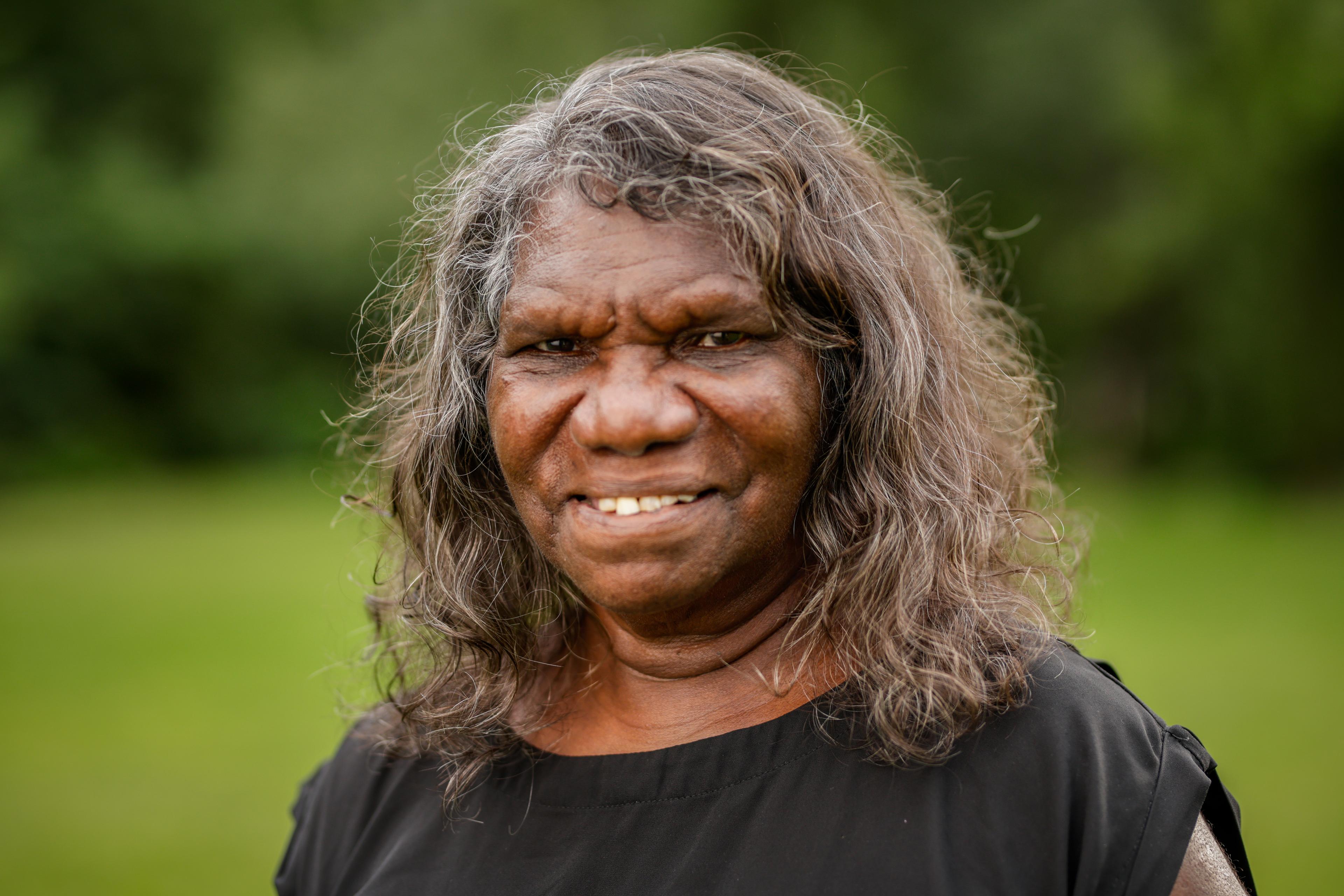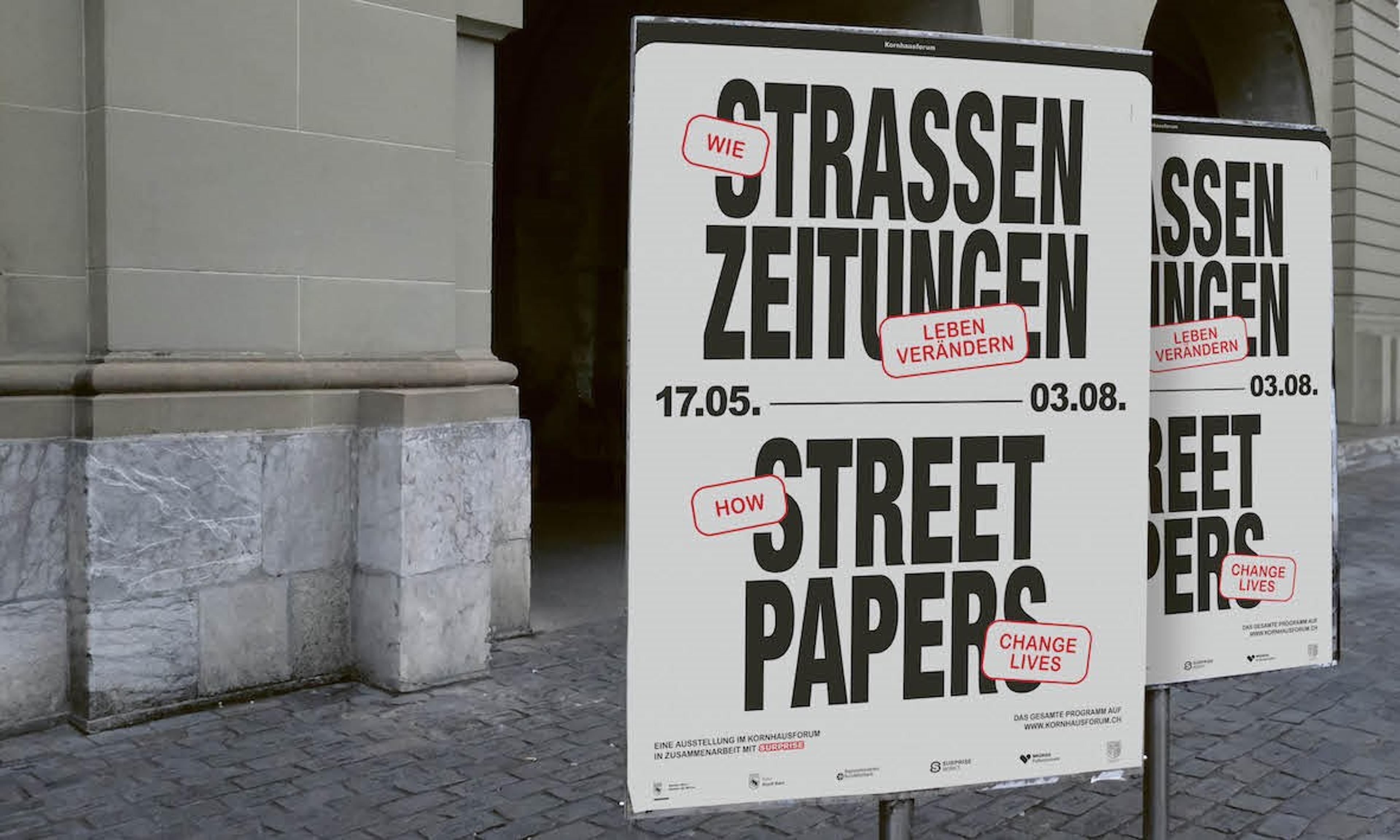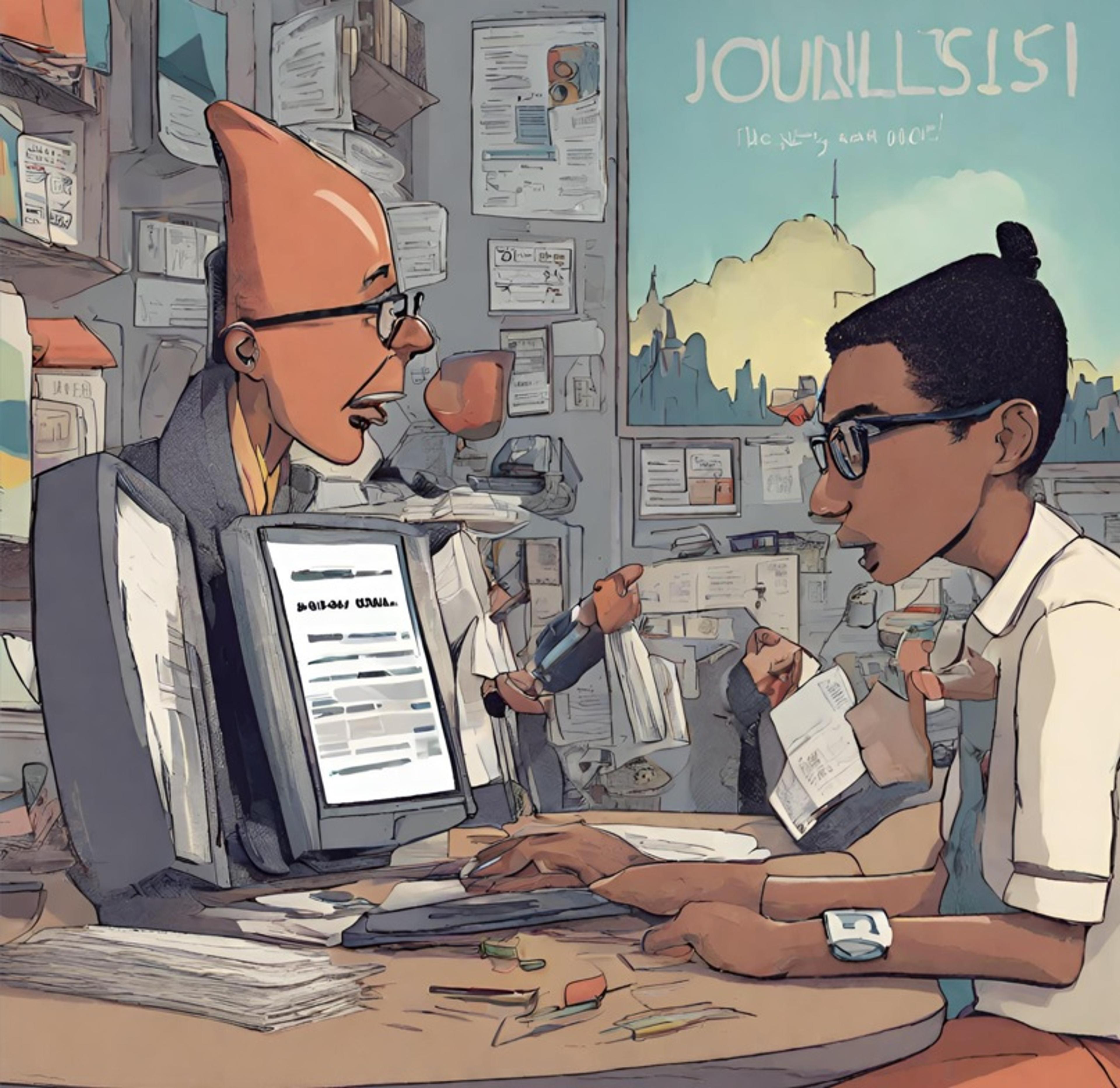Apropos editor Michaela Gründler: “I take all voices into account”
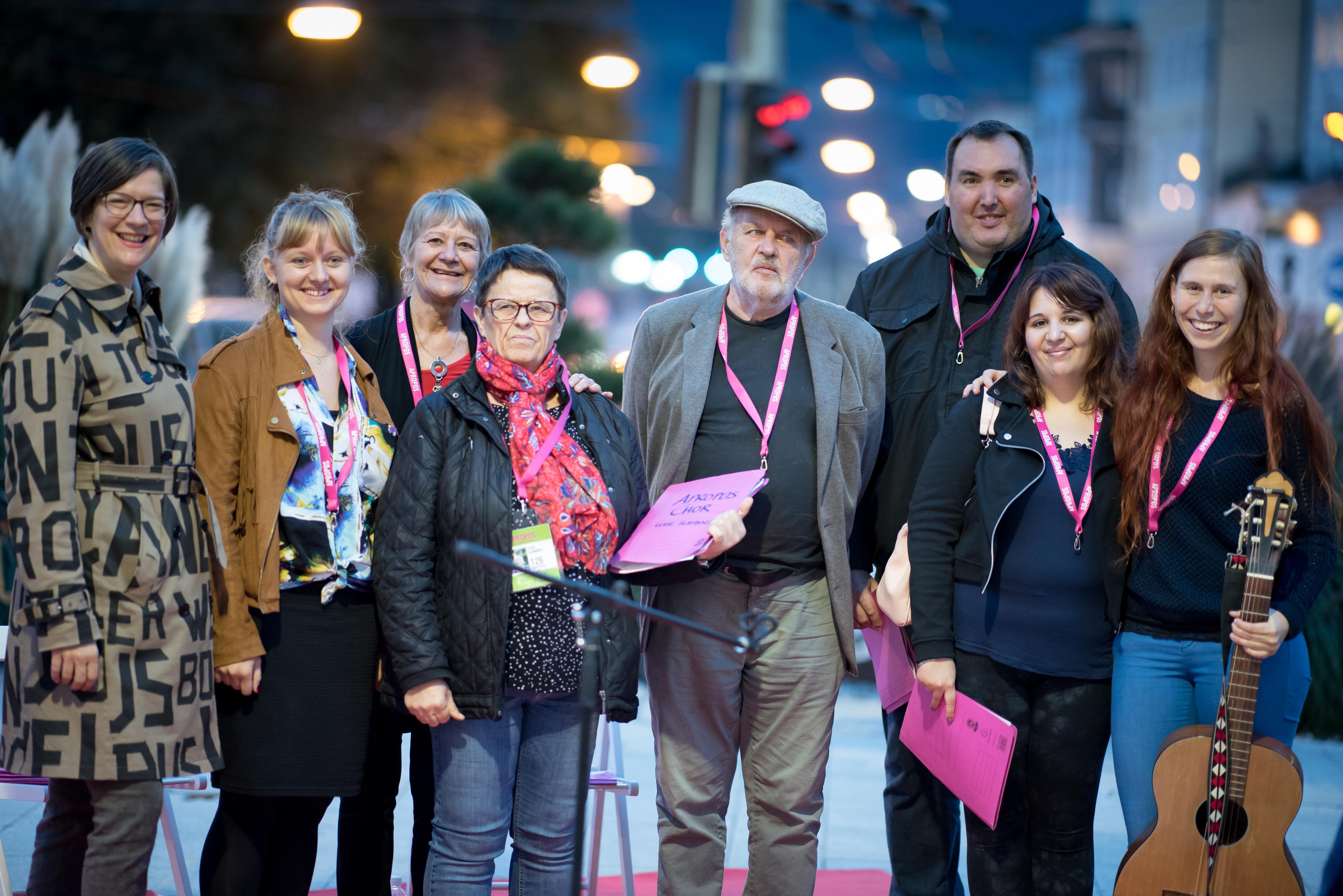
Norbert Kopf
Monika Pink
- Opinion
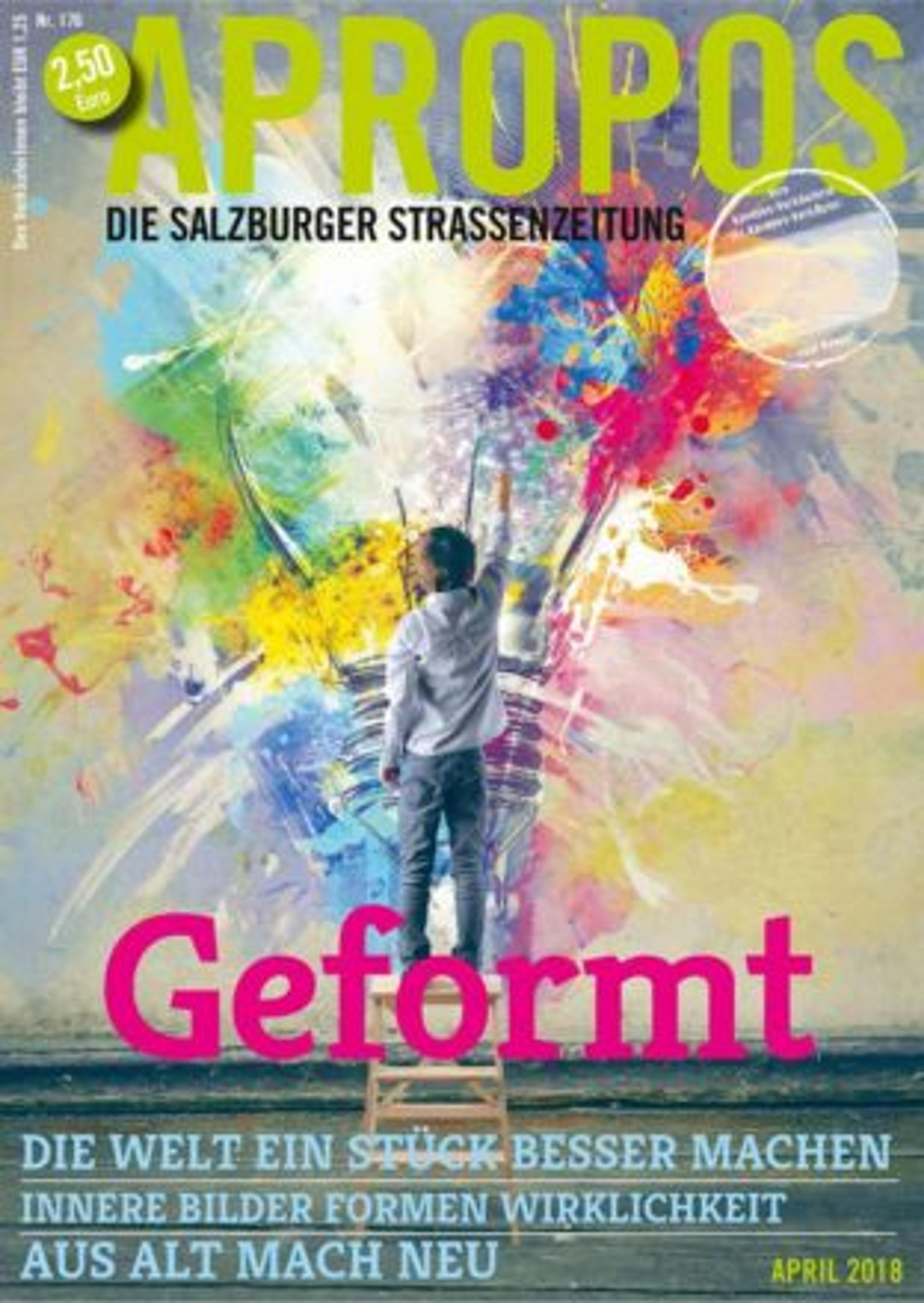
Apropos: How did the focal topic “togetherness” come about for the anniversary issue?
Michaela Gründler: Throughout the year, we usually collect exciting terms that could incorporate interesting subtopics. This time, it was different: we knew that there would be a cover interview with me to mark my 25th anniversary at Apropos. Besides, an article on how families and communities respond to disability was already planned for International Angelman Day.
We deliberated within the editorial team and together we agreed that, actually, “togetherness” is an excellent theme for a quarter of a century retrospective!
Why do you think togetherness lends itself so well to an Apropos retrospective?
A street paper is a universe created on many levels. First, someone must have the idea to start a street paper. In our case, it was our sponsor organisation, Soziale Arbeit gGmbH, 26 years ago. Then you need people who will make the idea into a reality – an editorial team and someone to handle sales and distribution.
And then, of course, the vendors – the most important people concerned. They need to be sourced and must want to sell the paper.
Then you work out how to make the paper sustainable. For this, you need numerous freelancers contributing articles and photographs, people to invest in the paper through advertising, and of course funding bodies such as the federal state of Salzburg. You also need people who read and buy the paper.
That’s why so many people in Salzburg are the reason that the paper has existed for so long. To me, togetherness also means people who don’t yet buy or read our paper finding out about us.
You’ve been involved for 25 years, including 22 as editor-in-chief. What are your expectations for the paper?
Street papers work on two levels. First, there is the social act of buying, because you want to do a good deed and because you also want to support the seller. At the same time – and this is our mission – we want people to have something good to read so they buy the paper again.
Through our content, it’s important to us to educate people on poverty without sinking into mawkishness, to convey the message that, yes, there are crises, but there are also glimmers of hope. In this way, reading Apropos becomes a conscious act of fostering neighbourly love and understanding for our fellow human beings.
It is only by learning about others that you can show compassion or become actively involved in change. In this way, the paper brings people together, creating connection – even at a societal level.
Do you think that togetherness plays a bigger role at a street paper than in commercial media?
Absolutely. We interact with vendors often, so through our writing, we are always directly connected to the people we represent. We also include them when we’re planning issues by discussing the themes with them in our regular writing workshop.
Under the heading “Internal”, we do a monthly behind the scenes report about what’s happening in the editorial and sales departments. The fact that our writers are always introduced with a profile in which they reveal something personal about themselves is also not to be underestimated. All this makes us approachable and has a huge impact.
Commercial media has different guidelines that also determine how much the “human” aspect is portrayed. I think we embody a strong human component, which is also reflected in the paper.
We feature our vendors a great deal. Within the framework of the writing workshop, they write their own articles, which function as an important mouthpiece. Through the bios or the recipe series, we make the people behind poverty visible: people who cook, who have families, who pursue interests and hobbies.
After all, the most important thing for every person is to be seen, to enter into relationships with others and to be recognised. Many vendors have regular customers. These are real bastions of connection – a means for people who buy the paper to look after their Apropos vendor.
In all your years with Apropos, when do think that the feeling of togetherness was strongest?
Anytime we all got together – vendors, volunteers, readers, the team – such as at our anniversary celebrations. We’ve done a number of book projects, which vendors were invited to write for, along with readings at all kinds of locations.
Most recently, there was last year’s fantastic project at the Hotel Sacher, and we hold annual Christmas parties. The moments when people congregate are when I’ve experienced the feeling of togetherness the most.
Were there also moments in which you wished for more togetherness?
I tend to be a person who says: “I can do that.” In that sense, I’m a bit of a lone warrior. I’m the only full-time employee – the rest of the team are all part-time.
In the editorial office, there have been times when I was on my own for months on end. It didn’t occur to me that I could ask for help because I thought to myself: “Oh, you’ll manage that.” That’s why I often pushed myself beyond my limits and was exhausted.
How do you personally ensure a spirit of togetherness within the Apropos team?
I like to support, encourage and praise, and I don’t take anything for granted. When I notice that someone has gone above and beyond, I make sure to thank them and to show my appreciation. I try to involve everyone and initiate group decisions.
Of course, I have the ultimate responsibility, but when the majority disagrees, I pay attention and take everyone’s voice into account. It’s important to me that, through my leadership, my team has a safe framework in which they can carry out their job well and independently and try out new things, and in which there’s a great deal of opportunity.
Also, that everyone knows that I’m there when I’m needed, but I don’t stick my nose where it doesn’t belong.
How do you measure the success of these collaborations?
We’re in contact every day and I can sense when something isn’t right. Then I can address it, because we have a trusting foundation for working together. But I also see how it’s going with [colleagues] Judith, Julia and Michael in their “internal” paper contributions.
I can tell by the enthusiasm, the great ideas and the engagement in projects, and that allows me to take a step back and take a little time out as the team can take things off my hands and get them done. As manager, I’ve already experienced lots of ups and downs, and I don’t take it for granted that the team works so well together.
What gave you the tools to combine journalism with social engagement?
The hospitality industry! My parents had a pub in Linz, and I always helped out. Working in hospitality teaches you how to deal with and adjust to all kinds of people, and you’re always thinking: “Does anyone need anything?”
My parents were very socially active; my dad was a volunteer choir leader, and my mum was a member of the parish council. They often invited lonely patrons from the pub to our house for Christmas.
I’ve always been a people person. In the beginning, we had lots of Austrian vendors at Apropos, some with alcohol problems, and I thought: “This is the logical continuation of my parents’ patrons!”
I studied humanities, German studies and journalism, and they say that humanities scholars are very solution-oriented and have a knack for interconnected thinking. It serves me well. And I can tell when something’s critical, and that’s when my top form kicks in.
I also have huge ambition to get things done. I look at things in detail, I’m a good listener and I listen intently, and it doesn’t faze me when someone is having a hard time. Because if you can’t stand it, if you go too hard with compassion, it doesn’t help anyone – not the person having a hard time, nor me listening to the person. It’s about empathy and a sympathetic distance.
Did you plan to stay so long at Apropos?
No, I’m amazed myself! At the start, there was this legal dispute about the name Asfalter, and I thought: “I’m anxious to see how long the paper even lasts.” It was touch and go from the start. I was already planning to work somewhere else.
But then the name dispute got resolved, I got offered a management position, and between the operative day-to-day and management duties, I was kept busy.
I’m an enthusiastic person and always need variety, and I get just that at Apropos. The constant is the paper, but beyond that, there are lots of projects that let me develop new skills. With my job, I get to experience what others experience when they change job every two years.
What are you particularly proud of?
Our many prizes and awards. Awards are incredibly important for a street paper to ensure that we are taken seriously as a medium. The first award that we received was the René-Marcic Prize, a top-class award in journalism. It did wonders for our reputation!
Other awards followed and we’re always very excited to receive them – not because we’re conceited, but because it means a lot for our vendors to be awarded for something that is generally not so recognised in society. To showcase those that generally have the experience of being shunned – this appreciation goes such a long way for them.
You used the phrase “taken seriously as a medium”: Have you witnessed a change over time?
I can still remember my journalism colleague asking me in the early days: “When are you going to finally start at a decent newspaper?” Street papers have to fight against prejudices from people who don’t even know anything about them. They think that all these papers write about is the woes of the world; they think they’re depressing and unpleasant to read.
When I took over management, it was my quality mission to make people buy Apropos not just to do something good, but because they enjoy reading it, too. Years later, I found it so satisfying when two journalist colleagues said to me: “If you ever leave, let me know. I would love to have your job.”
I recently got very excited because I was at a coffee shop and the latest Apropos was on the newspaper stand with all the other newspapers. I used to always secretly put a copy of Apropos in amongst the other newspapers and it was always gone on my next visit, and now we’re pretty much officially represented on these newspaper stands.
I also notice it when I’m looking for sponsors or advertisers for projects. There’s a lot of goodwill there. Reputable businesses and institutions come to us with project ideas. There’s a lot of willingness to support and help us, even in the private sector, when it comes to large donations for vendors for Christmas. It makes me very proud.
What is your vision for the coming years?
The paper has grown and it’s now about taking it to the next level. I believe that we need to do even more to raise awareness. I want to get more people reading about the issues of poverty, marginalisation and poor integration – and I want to do it in a way that makes them want to talk about it.
We’re always open to project ideas and collaboration in this regard. I would like to become more firmly anchored in the area of education, be it in the form of city walks, by our vendors attending classes or by us compiling educational material on the issue of poverty. Moving in this direction is important to me.
Do you have any specific wishes?
Since the start of this year, I’ve been thinking that it would be great if the paper could give the opening speech at the Salzburg Festival. It would do so much to raise awareness beyond our borders!
Translated from German via Translators Without Borders
Courtesy of Apropos / INSP.ngo
